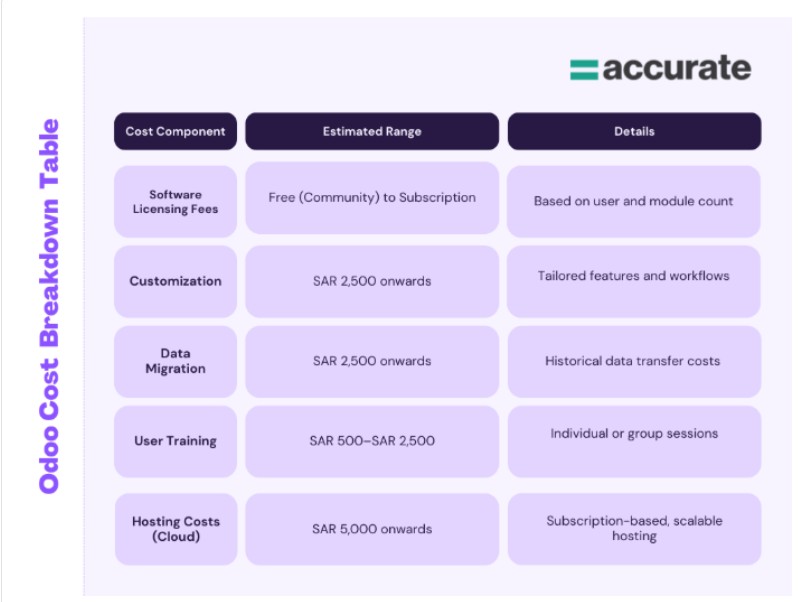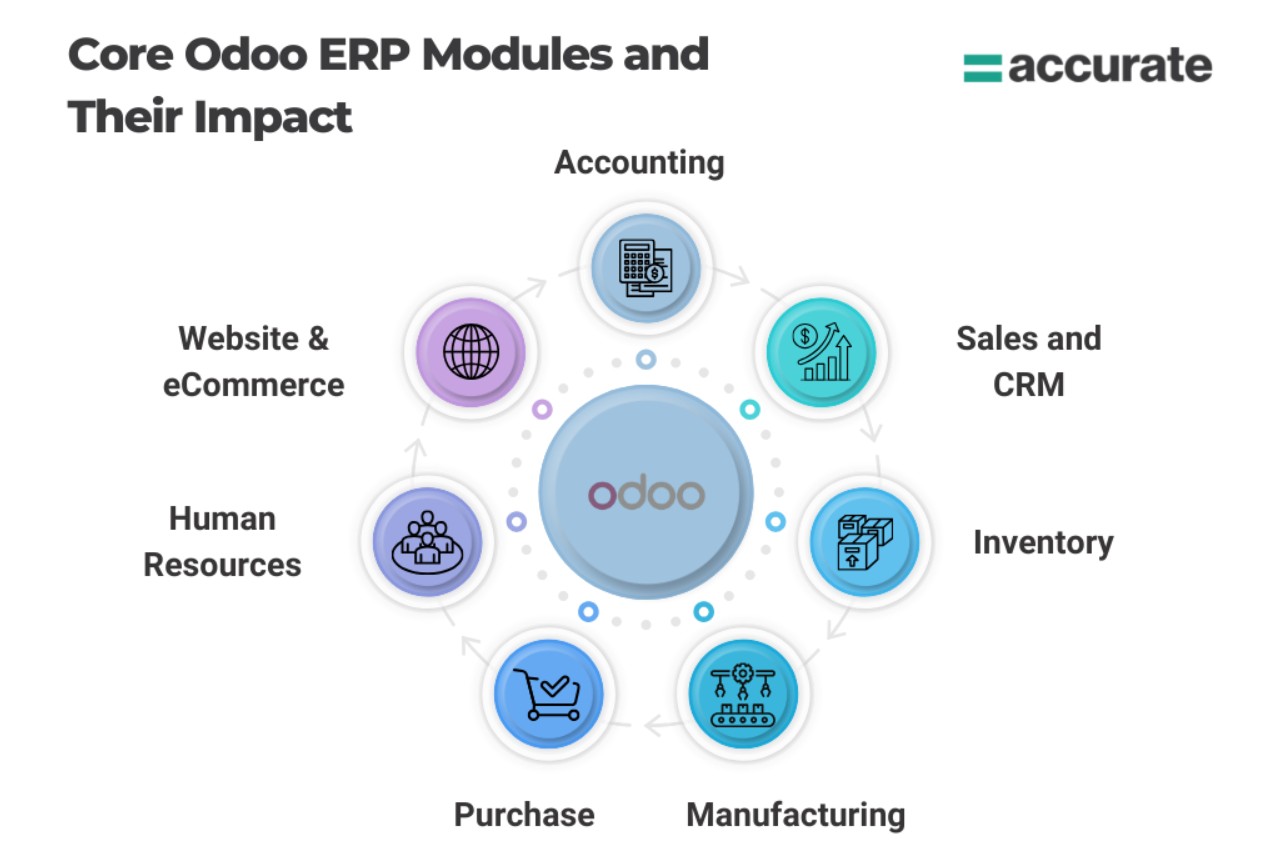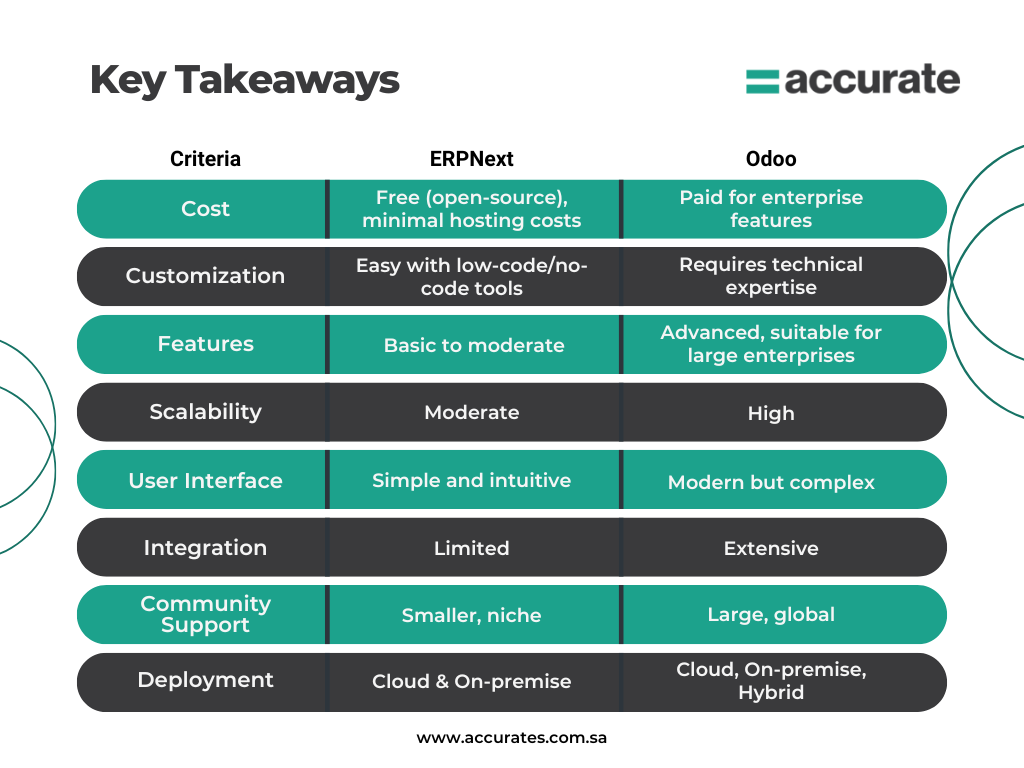Odoo vs ERPNext: Which ERP Solution is Right for Your Business?
When it comes to Enterprise Resource Planning (ERP) solutions, Odoo and ERPNext are two of the most popular open-source platforms. Both offer comprehensive features tailored to streamline business operations, but they differ significantly in terms of functionality, customization, scalability, and cost. This blog will help you understand the key differences to determine which ERP suits your business needs best.
1. Licensing and Cost
ERPNext: Completely open-source with no licensing fees. Businesses only incur costs for hosting, support, and custom development. This makes ERPNext an economical choice for startups and SMEs looking for budget-friendly ERP solutions.
Odoo: Operates on an open-core model. While the community version is free, advanced features require a paid enterprise license. Costs can increase based on the number of users, apps, and additional support services. Odoo's pricing is more complex compared to ERPNext.

2. Customization and Flexibility
ERPNext: Built on the Frappe Framework, ERPNext allows users to create custom applications without deep coding knowledge using its 'DocType' architecture. This makes it highly adaptable for businesses with unique workflows.
Odoo: Offers extensive customization capabilities but often requires technical expertise. Modifying workflows or adding custom modules typically involves programming skills, making it less user-friendly for non-developers.
3. Features and Functionality
ERPNext: Best suited for small to medium-sized businesses. It covers essential modules like Accounting, HR, Manufacturing, CRM, and Project Management. However, it lacks certain advanced features such as automated time tracking, contract management, and freight carrier integration.
Odoo: A robust ERP solution catering to businesses of all sizes. It offers an extensive range of modules, including Sales, Inventory, HR, Marketing, eCommerce, and more. Odoo's modular structure supports complex business processes and large-scale operations.

4. Scalability and Performance
ERPNext: Designed to handle moderate data loads efficiently, making it ideal for growing businesses. However, its performance can be limited when managing highly complex or large-scale operations.
Odoo: Highly scalable, suitable for enterprises with extensive data and multi-location operations. Its architecture supports large user bases and complex workflows with optimized performance.
5. User Interface and Experience
ERPNext: Offers a clean, intuitive interface with straightforward navigation, making it easy for new users to adapt. The simplicity of its UI is one of its strongest selling points.
Odoo: Provides a sleek, modern interface with rich functionalities. While powerful, its complexity can result in a steeper learning curve for beginners.
6. Integration and Extensibility
ERPNext: Limited integration capabilities compared to Odoo. Primarily supports web-based, Mac, and Windows platforms. It lacks native support for mobile apps, although third-party apps are available.
Odoo: Excels in integration with third-party applications. It supports Android, iOS, web, and desktop platforms, making it a versatile solution for businesses needing extensive connectivity.
7. Community and Support
ERPNext: Backed by a smaller, yet dedicated open-source community. Official support is available through Frappe Technologies and certified partners.
Odoo: Boasts a large, active global community with over 2,200 partners worldwide. Businesses can access a vast network of developers, consultants, and official support channels.
8. Deployment Options
- ERPNext: Available as both cloud-based and on-premise solutions. The cloud version is easy to set up, while on-premise deployment requires technical know-how.
- Odoo: Offers flexible deployment options—cloud, on-premise, and even hybrid solutions. The cloud version (Odoo.sh) simplifies hosting and maintenance for businesses without technical teams.

Odoo vs ERP Next: Which One Should You Choose?
Choose ERPNext if you're a small to medium business looking for a cost-effective, easy-to-customize, and user-friendly ERP solution.
Choose Odoo if you need a highly scalable, feature-rich ERP with strong third-party integration and are ready to invest in technical support for customizations.
Ultimately, your choice should depend on your business requirements, budget, and long-term growth plans.

